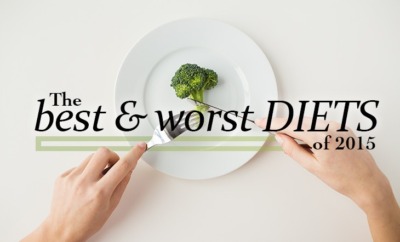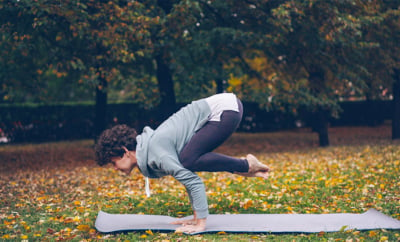Use Traditional Chinese Medicine to Be Your Healthiest This Summer (Here’s How)

There are so many ways to eat, exercise, and take care of your wonderfully unique self. Yet in this day and age, there’s a plethora of 30-day programs, detoxes, and very specific (and often limiting) ways of eating, moving, and living.
Whether your goal is to lose weight, increase energy, balance hormones, or improve digestion, there is a key factor to change. It’s not glamorous, and not talked about very often. Yet it is absolutely vital to achieve sustainable results.
That key is seasonal living. And adjusting our daily routines and the foods we choose alongside the change in seasons.
The way we live needs to work for our body, mind, and soul. And that’s where the application of Traditional Chinese Medicine (TCM) can do wonders.
How to Incorporate Traditional Chinese Medicine Into Your Life With Seasonal Living
Incorporating the principles of TCM isn’t a strict protocol or a quick fix. It’s lifestyle habits that support and nourish us on a deep level. One of the principles of TCM is adjusting our lifestyle habits: how we eat, move, and live throughout the year with the change of seasons. In other words, practice seasonal living.
Traditional Chinese Medicine is all about adaptation, fluidity, and enjoyment involving all the senses. It is a rhythmic approach that focuses on the more subtle qualities of food, spices, exercises, and seasons.
Nutrition plays a vital role in TCM. This is achieved via eating a balanced diet and adjusting diet based on the weather. Ultimately, Traditional Chinese Medicine encourages the appropriate use of ingredients to find balance and harmony.
For example, in colder seasons, use more cooked food and “warming” foods and spices (such as ginger, cayenne, and root vegetables) to balance out the effects of our external colder environment. In warmer seasons, use more “cooling” foods and spices (such as cucumbers, celery, fennel, and coriander) to combat the heat.
Eat in season too! Here Are 5 Benefits of Eating Produce In Season
Use Traditional Chinese Medicine to Transition With the Seasons
Transitioning with the seasons and becoming more aware of both the obvious and more subtle differences that occur seasonally can significantly impact our health. Nothing in this world is truly static. And that should include our daily routines too.
In comparison to Western medicine, a Traditional Chinese Medicine approach is based on the idea that nothing can be looked at in isolation. The entire person and system needs to be evaluated to best understand a disharmony in health.
In Traditional Chinese Medicine, nothing exists in isolation.
TCM is not so focused on if X is causing Y. Instead, it’s more focused on the dynamic and relationship between X and Y. In short, it’s focused on finding equilibrium: a balance and harmony in the mind, body, and soul.
TCM includes the elements that correspond to each season (earth, fire, water, wind, and wood) and specific organs that are predominant at different times of the year. Making small adjustments throughout the year to incorporate seasonal living can help us create more ease, nourishment, and vitality.
Interested in bringing the elements into your yoga practice? Try Earth Elements Yoga on YA Classes
Summer, According to Traditional Chinese Medicine: The Season of Fire and Expansion
Summer is the time of expansion, peak vitality, and outward and upward movement. Ruled by the element of fire, summer is the most yang time of the year.
Even without a TCM understanding, we know this. And we feel this in different ways: The days are longer. There’s more sunlight and energy. We’re inclined to take on more activities. It’s easier to gain momentum. We feel more social and engaged with both ourselves and the world around us.
The Organs Associated With Summer, According to TCM: The Heart and Small Intestine
During summer, the Heart and Small Intestine are the organs at the forefront, and should be given additional attention.
The heart (as we know it) physically governs the blood and blood vessels. But in TCM, the Heart (with a capital “H”) is also viewed beyond the physical components. It houses the Shen (mind/spirit). When there is harmony within the Shen and the Heart is nourished, the mind clears and the spirit is calm and at ease.
The Heart serves as a point of connection and communication in the way we behave and the timing in which we carry out our words and actions. According to The Foundations of Chinese Medicine, when the Heart is out of balance, it can lead to insomnia, situational anxiety, poor memory, and panic.
The way we live needs to work for our body, mind, and soul.
The Small Intestine communicates with the Stomach, Spleen, Bladder, and Large Intestine. And it also protects the Heart on an emotional level. Additionally, it helps to mentally discriminate issues for decision making. Disharmony in the Small Intestine may physically manifest as abdominal pain, diarrhea, or constipation.
Struggle with decisions? This is The One Thing That Most Impacts Your Ability to Make a Decision (According to Science)
Here’s How to Find Your Summer Health, According to the Principles of TCM:
You know you need to practice seasonal living. But, what do you need to do specifically in the summer? Follow these principles to gain your best summer health:
- Maintain a daily routine: eat breakfast between 7am and 9am (the stomach is at its optimal digestion capacity at this time)
- Eat in a calm and relaxed manner
- Drink plenty of fluids
- Avoid eating foods late at night
- Manage stress and anger as much as possible (heat is further aggravated by stress and anger)
- Attend to your mental/emotional health through support, stress management, or counseling
- Exercise every day (enough to break a sweat, but avoid overexertion). Yoga and QiGong are excellent choices
- “Cool” your diet to balance out the summer heat
Avoid (Or at Least Eat Less Of) These 8 Foods for Optimal Summer Health:
In Traditional Chinese Medicine, nothing exists in isolation. Everything exists on a spectrum of more or less, hotter or colder, more yin or more yang.
Therefore, as summer is the hottest time of year, to find balance, we need to eat foods with more cooling properties to move toward equilibrium.
So, avoid these heating foods to find your optimal summer health:
- Alcohol
- Excessive meat consumption
- Excessive raw foods
- Ice cold drinks (it decreases digestive capabilities)
- Refined carbohydrates
- Spicy foods
- Coffee
- Stimulants
The Takeaway on Traditional Chinese Medicine, Seasonal Living, and Summer Health
Traditional Chinese Medicine is a system of medicine that is rooted in preventative health.
By attuning to the seasons and becoming more aligned with nature and the cycles (on both a seasonal level and a daily level), we are providing our body, mind, and soul with more nourishment and harmony and cultivating greater health and vitality.
Interested in the yin side of yoga? What Is Yin Yoga and What Are the Most Common Benefits?


This Month's Letter
From the Editor
Monthly motivation and food for
thought from our founder.


























